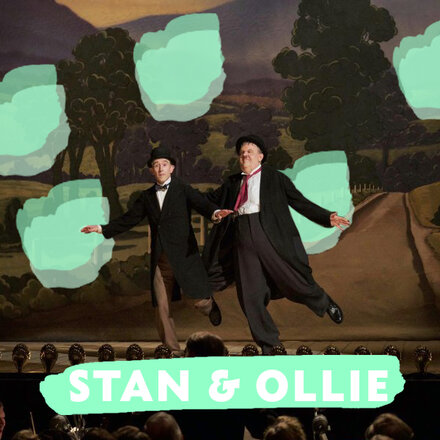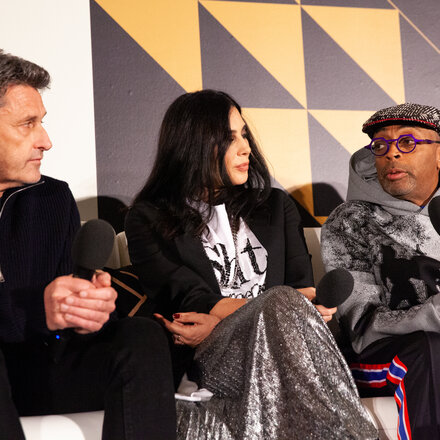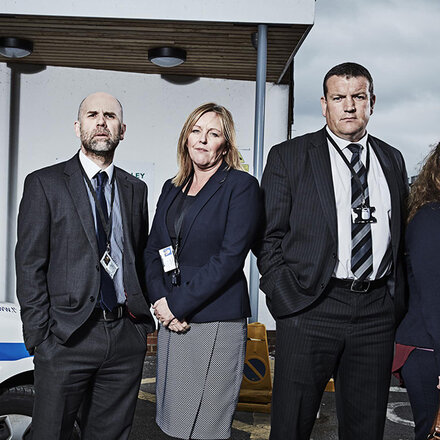Olly Lambert, Director (BAFTA winner - Syria: Across the Lines, Mum and Dad Are Splitting Up)
• Choose wisely - your first film is probably the one you will be judged on more than anything else you do, so think before you leap. Is the subject or style something that genuinely excites you, that really (I mean really) gets you curious? Does it feel like an adventure? If it does, then go for it. But if it just feels like a "break in TV" or a step on a career ladder, then think carefully.
• TV commissioners are not the enemy! Most commissioning editors are not the mindless Neanderthals their detractors make out. They may actually be able to help you make a better film, so listen to what they want, work with it, and choose your battles.
• Only connect. Whenever you can, find a personal connection to the subject matter in the film. You don't have to make it explicit in the work itself (or, worse, make it all about you...), but a genuine enquiry that feels important to you in some way will almost always seep out around the edges and give your film an extra layer.
• Be bold! Just because you're starting out doesn't mean you have to play it safe. Audiences are not always looking for the familiar, and commissioners are not always looking for a director who just does what they're told - very often they want a new take on something, a point of view, a brave idea, some fresh enthusiasm. Let yourself fantasize about what would make this film really extraordinary, and then think about it a bit more...
• Chase the unexpected. We all set out with an idea of a film or a story in mind. And almost without exception, something more interesting or unexpected will turn up. Real confidence is having the guts to notice that, throw your first idea out the window, and run after the better one.
• Embrace uncertainty. If ever I feel like I'm really clear and confident about something, it usually means I'm getting lazy and complacent, or taking my eye off the ball. Filmmaking is a precarious process, riddled with the unknown and the unplannable. Remember that uncertainty is part of the process, and try if you can to see it as such.
Vickie Ager, Producer/Director (Desi Rascals, The Apprentice)
• Brush up on your skills – I’ve done courses over the years on literally everything. If you want to improve your technical knowledge on the latest camera, learn how to cut a sequence together or struggle with writing commentary, there is definitely something out there for you.
• Listen to the world - notice the moments that moved you, made you laugh, cringe or cry, note them down and think about why and how you could replicate that feeling in your story telling.
• Become a collector - take photos, make films, watch films, list music, create a Pinterest board, cut stories out of magazine and papers. Again, think about how can you incorporate something you’ve been inspired by into your work.
• Plan for the unexpected - write a schedule, and a shooting script. Be prepared to adapt at the last minute. That can be frightening but also really exciting too. Finally, ENJOY IT.
Marc Williamson, Director and BAFTA Breakthrough Brit (The Last Chance School, Posh Pawn)
• Get Help! - Get a great mentor/exec behind you that you admire and can learn from. For my first hour one of my execs was Morgan Matthews, a director I greatly admired and who shared my sensibilities with the film.
• Film School - The best way to prove you can make an hour of broadcast standard TV is to have made an hour of broadcast standard TV. The National Film and Television School allowed me space to develop my style and gain experience whilst also developing relationships with a team I was comfortable working with on my first hour.
• Have a plan - As a director it is your vision that will 'make' a film. Have a very clear idea of your story beats and style and how your film will work before you start. I did test shoots and edited footage at the start to ensure that we were achieving what we wanted.
Steve Smith, Multi-cam Director (BAFTA-winning The Graham Norton Show, A League of their Own, Alan Carr: Chatty Man)
• If your ultimate goal is to be a studio director, make sure you get plenty of non-studio directing experience under your belt. Directing in any genre is all about story telling with images - so learn the craft of directing by starting with single camera projects. There are lots of basic rules which can be learnt out of a studio and then applied to studio situations, so become a confident single camera director first. I spent many years directing location items before moving into a studio and the experience was invaluable.
• Find out how a studio works - try and spend time just being in studio environments observing and learning what goes on and who does what. Most studio crews are really friendly and happy to let you watch what’s going on. Remember be polite and unobtrusive and always ask permission from the floor manager or director.
• If you want to be a director, it’s likely that you will still find yourself having to enter the profession at a junior runners position, but it’s never been easier to make your own films. Most people come out of film school with great technical skills knowing how to self-shoot and edit. Even when you get your first runners job, never give up making your own short films and piloting ideas for yourself. They will help you create your own showreel and demonstrate your commitment and enthusiasm for directing.
• You are never going to walk straight in to directing a major studio show without studio or gallery experience. Consider working on shopping channels where you might have to direct and vision mix and work late night shifts but it will give you gallery experience. Regional news programmes could offer an opportunity to work in a studio environment. The first studio show I directed was a BBC Children’s series from Manchester. A studio director needs to get gallery experience before they get to direct their first prime-time hour.
• Most of all be persistent - keep telling people that you want to direct studios and at any opportunity put yourself forward. Ask established directors if you can shadow them and if they will mentor you. Don’t give up - but don’t be fooled into thinking it will be easy. Also once you get your first break, getting enough work to make a full-time career can be hard. To have a viable career you need to be working on several shows at the same time. It might be worth considering being a studio director and having a second skill to fall back on.






